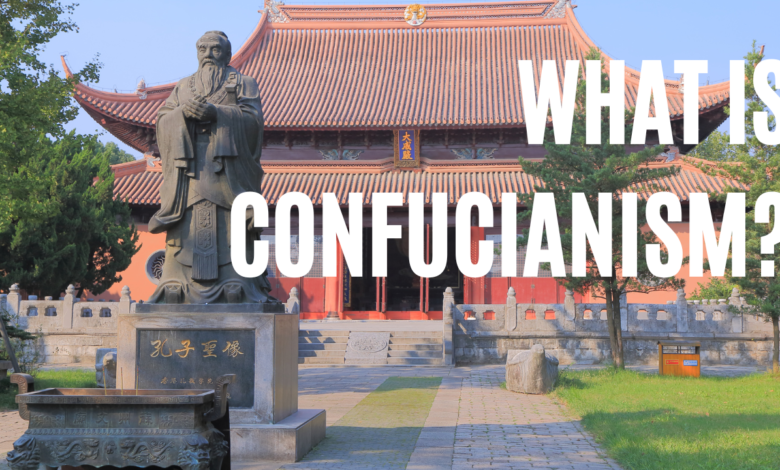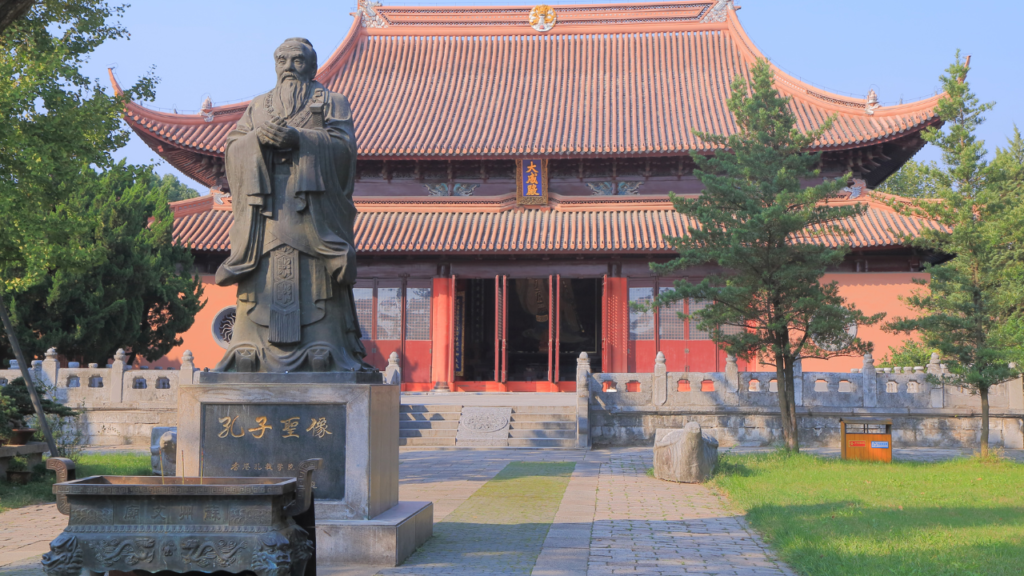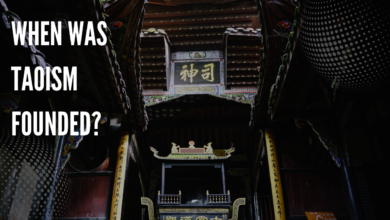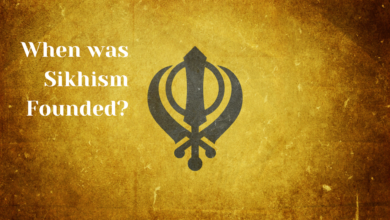
What is Confucianism?
Confucianism is a philosophical and ethical system based on the teachings of the ancient Chinese philosopher Confucius. It emphasizes moral integrity, the cultivation of virtue, proper conduct in social relationships, and a commitment to societal harmony.

Introduction to Confucianism
Confucianism, a philosophical and ethical system, has shaped East Asian societies for centuries. It’s not just a religion but a way of life, deeply embedded in the cultural fabric of countries like China, Korea, and Japan. Its influence can be seen in the daily lives of millions, from rituals to social conduct.
The Life of Confucius
Early Life Confucius, born in 551 BCE in China, started as a minor government official. However, his journey was not just about climbing the bureaucratic ladder; it was about finding moral perfection.
The Awakening to Philosophy It was during his tenure in various governmental roles that Confucius started developing his ideas about virtue, governance, and society, which would later become the bedrock of Confucianism.
Later Years and Legacy Confucius’s later years were dedicated to teaching. His thoughts, preserved by his disciples, continue to influence many.
Also check.
Core Principles of Confucianism
The Five Key Relationships Confucianism is built around five cardinal relationships: ruler-subject, parent-child, husband-wife, elder brother-younger brother, and friend-friend. Harmony in these relationships is considered essential for a well-ordered society.
The Concept of Ren (Benevolence) Ren is the quality of compassion and empathy. It’s the cornerstone of Confucian ethics, urging individuals to maintain harmony and goodwill in all interactions.
The Role of Li (Proper Conduct) Li encompasses rituals and proper behavior. It’s about observing social norms to maintain societal harmony.
The Importance of Yi (Righteousness) Yi involves doing the right thing for the right reason. It’s about justice and morality beyond personal gain.
Confucian Texts and Teachings
The Analects The Analects are a collection of Confucius’s sayings and teachings compiled by his disciples. It’s the most read and studied of the Confucian texts.
The Five Classics These texts cover history, poetry, divination, and statecraft, providing a foundation for Confucian thought.
Confucianism in Practice
Rituals and Daily Practices Rituals in Confucianism are not just religious ceremonies but also include everyday practices that reflect respect and piety.
Confucianism in Government and Society Confucianism emphasizes a well-ordered society based on hierarchies and respectful relationships, influencing governance and societal structures.
Modern Relevance of Confucianism
Confucianism in Today’s Society Despite modernization, Confucian values still permeate Asian cultures, from business practices to family structures.
Adaptations and Interpretations Confucianism has adapted to the modern world, influencing everything from corporate ethics to personal development.
Challenges and Criticisms
Historical and contemporary criticisms of Confucianism often revolve around its perceived rigidity and the way it has been used to justify authoritarian regimes.
Confucianism in Different Cultures
Confucianism in East Asia While rooted in China, Confucianism has been interpreted differently across various East Asian cultures.
Influence Beyond Asia The philosophy has also impacted Western thought, promoting cross-cultural dialogue and understanding.
Learning and Education in Confucianism
The Role of Education Education is revered in Confucianism, seen as a means to cultivate virtue and wisdom.
Confucianism in Modern Education Systems Many East Asian education systems still reflect Confucian ideals, emphasizing respect, hard work, and filial piety.
Confucianism and Other Philosophies
Comparisons with Western Philosophies While differing in many respects, Confucianism shares with Western philosophies the quest for an ethical society.
Interactions with Other Eastern Philosophies Confucianism has coexisted with, and been influenced by, other Eastern philosophies such as Taoism and Buddhism.
The Aesthetics of Confucianism
Art and Architecture Confucian principles are reflected in the simplicity and harmony of East Asian art and architecture.
Literature and Music Confucian themes are prevalent in classical literature and music, emphasizing moral lessons and the beauty of order.
Confucian Values in Leadership
Business and Management Confucianism influences modern business practices, stressing leadership responsibility and ethical management.
Political Leadership Confucian ideals of wise and moral leadership continue to be relevant in discussions about governance.
Confucianism in the Digital Age
The Spread of Ideas Digital platforms have facilitated the spread of Confucian ideas, making them more accessible globally.
Online Confucian Communities Online communities have emerged where individuals discuss and apply Confucian principles in modern contexts.
Personal Growth and Confucianism
Self-Cultivation and Improvement Confucianism encourages personal development and continuous self-improvement.
Applying Confucian Principles in Personal Life Confucian teachings can be applied to personal life, guiding individuals toward virtuous and fulfilling lives.
Conclusion
Confucianism is more than a philosophy; it’s a timeless guide for personal conduct and social harmony. Its principles, though ancient, have a profound relevance in the modern world.

FAQs
What exactly is Confucianism?
Confucianism is a philosophical and ethical system based on the teachings of the ancient Chinese philosopher Confucius. It emphasizes moral integrity, the cultivation of virtue, proper conduct in social relationships, and a commitment to societal harmony.




